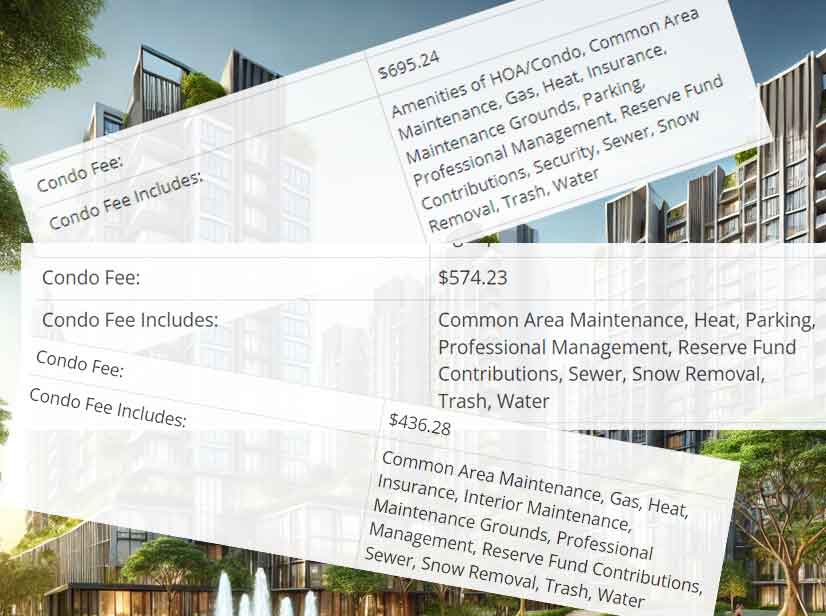Navigating the realm of condominium ownership involves more than simply selecting a desirable property; it necessitates a comprehensive understanding of the financial obligations associated with it. One of the most significant aspects of condo ownership is condo fees. This guide, provided by Malvinder S. Tiwana of Tiwana Real Estate Team, Grand Realty Calgary offers an in-depth examination of condo fees—what they encompass, how they are determined, and what to expect.
Defining Condo Fees
Condo fees, also known as maintenance fees, are obligatory monthly payments made by condo owners to the condominium association. These fees are crucial for covering a range of operational costs, including the upkeep of common areas and shared amenities. Additionally, a portion of these fees is allocated to a reserve fund, which is vital for financing significant repairs and replacements as they arise.
The amount of condo fees varies based on several factors, including the size of your unit, the type of building, and the amenities provided. Typically, larger units and buildings with extensive amenities incur higher fees. It is important to recognize that condo fees are separate from other ownership costs such as mortgage payments, property taxes, and personal insurance.
Coverage of Condo Fees
Condo fees are utilized to cover several key expenses related to the property. The following provides a detailed overview of what is generally included:
- Maintenance of Shared Spaces: This encompasses the cleaning and repair of common areas such as lobbies, hallways, elevators, and landscaping.
- Utilities: Many condominium buildings include utilities such as water and heating within the condo fees. It is advisable to confirm the specifics to understand what utilities are covered.
- Building Insurance: The insurance provided covers the building’s structure and common property; however, owners are required to obtain separate insurance for personal property and liability within their units.
- Amenities: Fees contribute to the maintenance of amenities such as gyms, swimming pools, and communal areas, irrespective of individual usage.
- Security Services: This includes the costs associated with security measures such as guards or surveillance systems.
- Reserve Fund Contributions: A portion of the fees is allocated to a reserve fund to address long-term expenses and major repairs, thus mitigating the need for sudden, large assessments for owners.
Calculation of Condo Fees
The determination of condo fees involves multiple factors:
- Unit Size: Larger units generally result in higher fees due to their proportional use of building resources.
- Building Features and Amenities: Buildings equipped with more amenities and complex features typically incur higher fees to cover maintenance and operational costs.
- Shared Utility Costs: Fees often include a share of utilities used by all residents.
- Reserve Fund Requirements: Contributions to the reserve fund are a crucial factor in fee determination, ensuring that funds are available for future significant repairs.
- Building Age: Older buildings may require more frequent repairs, which can contribute to increased fees over time.
Typical Fee Ranges
In Calgary and throughout Canada, condo fees generally range from $0.30 to $0.65 per square foot of your unit. For instance, a 1,000-square-foot condo might have fees ranging from $300 to $650 per month. In luxury or high-end buildings, these fees can surpass $1,000 per month. It is prudent to review the financial history of a building to understand potential future increases due to inflation and escalating maintenance costs.
Frequently Asked Questions
- Can Condo Fees Increase Over Time?
Yes, condo fees may increase due to factors such as inflation, rising maintenance costs, and reserve fund requirements. Reviewing the building’s financial statements and historical fee changes can help anticipate potential future costs. - Are Condo Fees Tax-Deductible?
Condo fees may be tax-deductible if the unit is rented out or used for business purposes. For precise advice, consult a tax professional to understand how these deductions apply to your specific situation. - Do Condo Fees Include Utilities?
The utilities covered by condo fees can vary. Some buildings include water and heating, while others may not. It is essential to verify which utilities are included before purchasing a unit. - What Happens if Condo Fees Are Not Paid?
Non-payment of condo fees can result in penalties, interest charges, and legal actions. In severe cases, the condo association might place a lien on your property or initiate foreclosure proceedings. - Do Condo Fees Cover Property Taxes?
No, condo fees do not cover property taxes. Property taxes are a separate expense that is paid directly to the municipality. - What Are Special Assessments?
Special assessments are additional charges imposed for unforeseen repairs or major expenses not covered by the reserve fund. Owners are notified in advance and provided with details regarding the assessment and payment options.
Conclusion
A thorough understanding of condo fees is essential for anyone considering condo ownership. These fees are integral to maintaining the property, supporting amenities, and ensuring long-term functionality. By being well-informed about what condo fees cover and how they are calculated, you can better manage your real estate investment and avoid unexpected financial burdens.






